Inside: Sleep disorders in children are a concern for parents who know the positive difference sleep can have on their kids and teens—how they feel; how well they do in school and their relationships with others. Here are 10 tried-and-true ideas to help kids have a restful night’s sleep.
Sleep Disorders in Children
Did you know that 60+ million Americans have sleep issues of one kind or another? Getting a good night’s sleep is essential to good health for people of all ages.
There are a growing number of people (kids and adults) who experience sleep disorders—difficulty falling asleep or staying asleep. This is a problem because sleep is very important for most bodily and cognitive functions in children.
Bottom line: if you want your children to learn in school and pay attention–they need a good night’s rest. Sleep is critical to learning!
Here are some tips for your children and teens to help them get to sleep and stay asleep.
Sleep Disorders in Children/Teens: Getting to Sleep and Staying Asleep
Tip #1: Establish a Ritual & Routine for Your Kids
Getting a child to go to bed and fall asleep sometimes feels like an impossible feat! Kids come armed with excuses for not going to bed. And children with severe learning issues or with autism oftentimes have sleep issues. These suggestions will help. Having a set bedtime routine every night becomes a ritual. Kids like organization, continuity, and a routine they can trust. Try these routines/rituals and see if they work for your family.
#1: Alarm Clock for Each Child
Give each of your children their own bedroom alarm clocks. Teach them the basics of telling time and how to set an alarm clock to wake them up at the same time each morning. Do this routine even on the weekends.
#2: Shower/Bath & Brushing Teeth
One hour before bedtime, have your children wind down by taking a shower or a bath (see below), changing into their pajamas, and brushing their teeth.
#3: Storytime
Thirty minutes before bed, have family storytime. Let each child choose two or three books that you read together. Storytime is a wonderful way to calm your child and connect with them before bedtime.
#4: Rock-Me-Time & Favorite Blanket or Toy
Ten minutes before bed my husband and I took each child to a rocking chair for Rock-Me-Time. We asked each child what was the best thing that happened to him that day. Keep it positive and cheerful. Right before bed is NOT the time to talk about negative topics. For teens–sit by their beds and talk to them before they go to sleep.
Some children love a special blanket or toy–let them take it to bed with them (no matter how old they are). Children find comfort in these objects and having them close by will help them to sleep.
#5: Back Massage
Three or four times each week, my husband and I gave our kids simple back massages. It’s a very powerful way for children/teens to wind down and relax.
#6: Music Soothes the Savage Beast
There is something about certain kinds of music that can calm and soothe a restless child. These selections of classical music are great for relaxing. Also, check out the Classical Kids Series.
- “Clair de Lune” by Debussy
- Adagio in G Minor by Albinoni
- Morning from “Peer Gynt,” by Grieg
- Pachelbel Canon in D with Ocean Sounds
- Any nature music—rain, wind, ocean sounds, forest sounds—are all very calming
Brainwave Music System
Brainwave Music System is a six-CD set created by Jeffrey Thompson, director of the Center for NeuroAcoustic Research in Carlsbad, CA. The CDs use music embedded with tones to help you get to sleep faster. The system is based on company research showing that sound patterns combined with music can alter brain waves and a person’s state of consciousness
Tip #2: Dump the Tech Devices
Shut off all tech devices, including phones, the Internet, television, video games, etc., two hours prior to bedtime. Do NOT let your child or teen take their cell phone to bed no matter how much they scream and yell. Teens have been known to stay up surfing their phones and texting until the wee hours of the morning which doesn’t help their ability to learn at school.
Tip #3: Eliminate Caffeinated Drinks & Fast Food before Bedtime
Caffeine is a stimulant and will keep your child or teen awake. That’s one of the reasons many adults drink coffee in the morning—they need to wake up. Bedtime is different—children and teens need their sleep. Make it a rule—no sugary caffeinated drinks at least 3-4 hours (preferably longer) before bedtime. Caffeine can also cause nervousness, headaches, irritability, and depletes the body of vitamins. Drink chamomile tea instead (see below).
Also, don’t eat fast food right before bed. There are hidden and unhidden sugars in most fast food not to mention all the salt. If your child wants something to eat before bedtime, check out the list of foods below.
Tip #4: Turn Off the Lights!
Many kids can’t sleep in a room with a light on. Even a night light is too much light for some children. Keep the room dark. It signals to the brain to slow down and rest. If your child has difficulty with any light coming in the room—purchase a night eye mask for her to wear.
However, the opposite can happen. Some children are afraid of the dark. In that case, provide a small night light for them—it can be comforting and help them get to sleep.
Tip #5: Melatonin: Friend or Foe?
Melatonin is a hormone produced by the pineal gland, the organ which regulates the body’s sleep/wake cycle. The hormone is secreted in a circadian rhythm by enzymes that are activated by darkness and depressed by light.
Melatonin will only help you or your child sleep IF your body is deficient in it. Give your child or teen one 5mg capsule 30 minutes before retiring to bed. If it doesn’t help them to sleep, then the amount of melatonin in their bodies is sufficient.
Tip #6: Magnesium: The Calming Mineral
Magnesium is a very important mineral with multiple uses. It has a calming effect on people. However, it quickly gets depleted from the body when a child or teen is under stress. Try giving your child one magnesium citrate (75 mg) 20 minutes before bedtime. It may be the key to calming her/him down and inducing a good night’s sleep.
Tip #7: Yoga for a Good Night’s Sleep
Research has recently pointed out that yoga can help kids or adults suffering from insomnia. Basic yoga training can help your child get to sleep, stay asleep, and wake up feeling refreshed and energetic. Here is some yoga poses suggested. As you can see, each pose needs to be done for 20 seconds. These also help adults with primary or secondary insomnia. Do these with your kids.
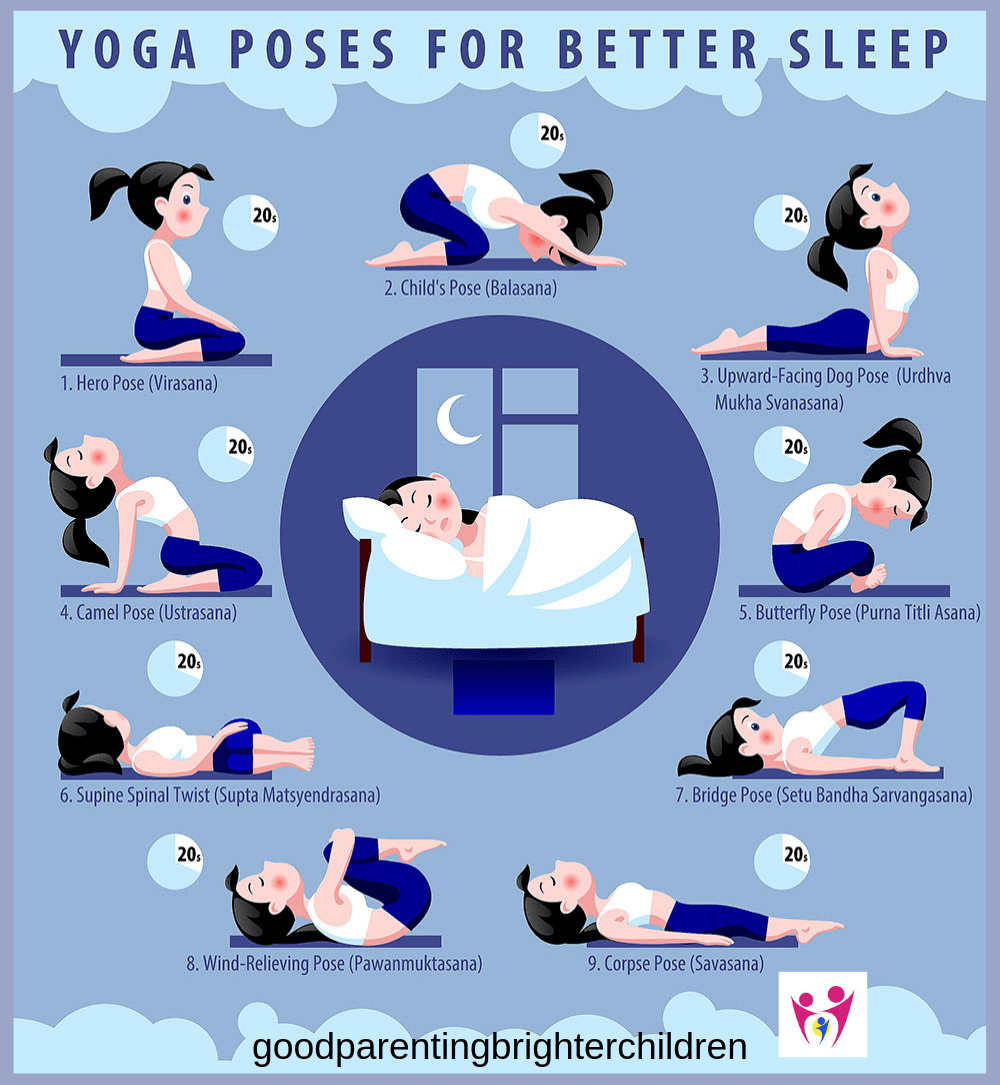
Do each pose for 20 seconds before moving on to the next one; about 30 minutes prior to going to bed.
Tip #8: Calming Foods
Here is a list of foods that may/may not help your child sleep. Most contain tryptophan or magnesium and should be eaten about 1 hour before sleep.
Bananas
This fruit contains magnesium to relax muscles, and also melatonin and serotonin to help calm the body and mind. Have your child eat ½ banana 30 minutes before he/she goes to bed.
Warm milk
The amino acid tryptophan found in milk acts as a sedative, and the calcium in the milk helps the body use and absorb the tryptophan. This stimulates the production of a chemical in the brain called serotonin which helps to calm the mind. Warm milk has been an age-old recipe for sleep for centuries. If you have a child or teen who has difficulty sleeping, give them a glass of warm milk before bedtime.
Potatoes
It seems odd to eat potatoes for sleep mainly because I don’t know too many parents who would feed their kids potatoes right before bedtime. However, your child can eat them for dinner and will still enjoy the effects potatoes have on sleep. Potatoes cancel out the acids that can interfere with snooze-inducing tryptophan. In other words, if you eat a potato and also a food that contains tryptophan, the potato will help the tryptophan to be absorbed more easily.
Chamomile tea with Valerian and Passiflora
Chamomile tea has long been used as a drink before bedtime. It acts as a mild sedative and even children enjoy its calming taste. Chamomile is one of the 9 sacred herbs of the Saxons and helps rid the body of emotional strains and stresses. If used as an oil, it can help to calm your baby. Also, orange blossom, valerian, and passiflora are all wonderful herbs that help to gently aid a child to sleep. Make a tea infusion; add some honey and have your child sip it 30 minutes before going to bed.
Oats
Oats are rich in melatonin. Plus they are filling and will tide your child over during their journey to the land of Nod. A bowl of oatmeal, eaten an hour before bedtime, works to help your child fall asleep.
Cheddar cheese
A wedge of cheddar cheese is rich in tryptophan and protein.
Honey
Mix a bit of honey to either sweeten your tea or your child’s warm milk. The honey will help your child’s brain switch off orexin, a neurotransmitter that helps keeps people alert.
Almonds
Almonds are an amazing food for so many things! They contain tryptophan and magnesium—an important amino acid and mineral to help your child sleep. Three or 4 will do the trick!
Turkey
How many times after eating a big Thanksgiving meal do you feel like you need to take a nap? Loaded with tryptophan, a couple of slices of turkey on whole-wheat bread will help bring a restful night’s sleep to your child.
Tip #9: Calming Baths & Essential Oils
If one of your children is having sleep issues, have them take a bath. There are many things you can add to a bath that will help your child sleep. Try one of these amazing bath salts—they work like magic! And add essential oils to the bath such as lavender, orange, or tangerine.
Bath Salt #1: Epsom Salts
Epsom salts are not actually a salt. They contain magnesium, sulfur, and oxygen and help to reduce stress and induce sleep. When a child or teen is under stress two things happen: the body is drained of magnesium and adrenaline increases.
That’s where an Epsom salt bath will help your child—a ton! The magnesium in the Epsom salt is absorbed through your child’s skin and increases magnesium levels in the body. In turn, magnesium helps to produce serotonin, the mood-elevating chemical that promotes calm and relaxation.
The magnesium in Epsom salts promotes sleep by helping the brain produce neurotransmitters that encourage sleep and reduce stress. It also helps the body produce melatonin—the hormone that helps with sleep.
Bath Salts #2: Dead Sea Salts
Dead Sea Salts are loaded with magnesium which helps to calm a child and bromide which relaxes body muscles and calms a child’s or teen’s nerves.
Bath Salts #3: Himalayan Salts
Stress is a part of life. Unfortunately, more and more children and teens are feeling the devastating effects of too much stress in their lives. It affects how they learn and how they interact with friends and family.
One way to combat stress is through a soothing bath. Himalayan salts added to your child’s bath have been shown to relax the body, regulate stress hormones, reduce tension and help kids of all ages able to concentrate and learn.
Our body temperature naturally drops at night and a soak in the tub before your child or teen goes to bed causes a rapid cool-down immediately after and helps the body to relax.
Tip #10: Sleep Helps Kids Learn and Improves their Moods
Last, the Harvard Women’s Health Watch found that sleep helps a child with learning and memory. Sleep helps the brain commit new information to memory through a process called memory consolidation. In studies, young people who had slept after learning a task did better on tests later.
They also found that kids who experience sleep loss are more irritable, impatient, and have difficulty concentrating and learning because lack of sleep actually destroys grey matter. They are also more susceptible to depression and anxiety. Likewise, when kids get enough sleep, the opposite occurs.
Try these ideas to help your children and teens get enough sleep each night. Studies indicate they will do better in school and life as a result!
This blog is part of my “Tidbits of Wisdom for Parents” Youtube video series. If you would like to watch the video, click here.
Do you have something you do to help your kids sleep? Please comment in the section below—this is one subject we want to gather as many ideas as possible!
Want to remember this post? Post, “How to Fix Sleep Disorders in Children: 10 Amazing Ways!” to your favorite Pinterest Board!
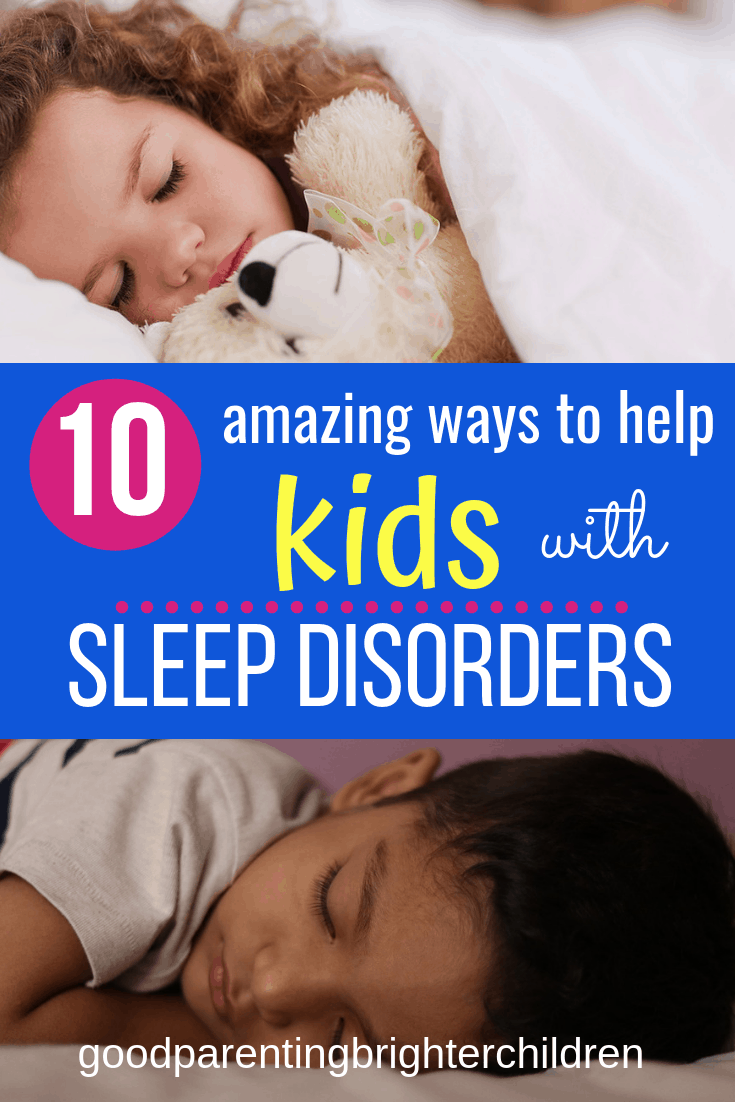
FAQ’s
What causes sleep disorders in children?
If your child does any of the following, it can cause sleep disorders or interrupt their sleep: Drinking caffeinated drinks at night. Eating fast foods or sugary foods right before bed, Using the cell phone before bed, playing video games before bed, and watching television before bed. Some medications can keep a child from going to sleep and Keeping lights on in the bedroom
Which sleep disorder occurs most often in children?
Children who can’t get to sleep or children who cannot stay asleep. Both are considered the most common sleep disorders.
How can I get my 4-year-old son to sleep through the night?
Here are 5 ideas to help: Establish a bedtime routine and keep to it. Do simple yoga exercises to induce relaxation. Even young children can be taught some yoga poses such as the child’s pose, hero pose, and butterfly pose. Eat a few foods that are high in tryptophan 30 minutes before bedtime: warm milk, cheese, bananas, and chamomile tea. Play soothing music like classical music or music that mimics sounds in nature. Give your child a relaxing back massage.
What can I give my child for insomnia?
There are several different foods that can help with insomnia. Feed them to your child 30 minutes before bedtime. Try Bananas that contain magnesium, melatonin, and serotonin to calm the body. Warm milk contains tryptophan that acts as a sedative and calms children. Chamomile tea with orange blossom, valerian, and passiflora. These herbs will calm a child.
Is melatonin safe for children?
Yes, melatonin is safe for children in the correct dosage. Melatonin is a hormone produced by the pineal gland, the organ which regulates the body’s sleep/wake cycle. The hormone is secreted in a circadian rhythm by enzymes that are activated by darkness and depressed by light. Melatonin will only help you or your child sleep if your body is deficient in it. Give your child or teen a 3mg capsule 30 minutes before bedtime. If it doesn’t help, then the amount of melatonin in their bodies is sufficient.
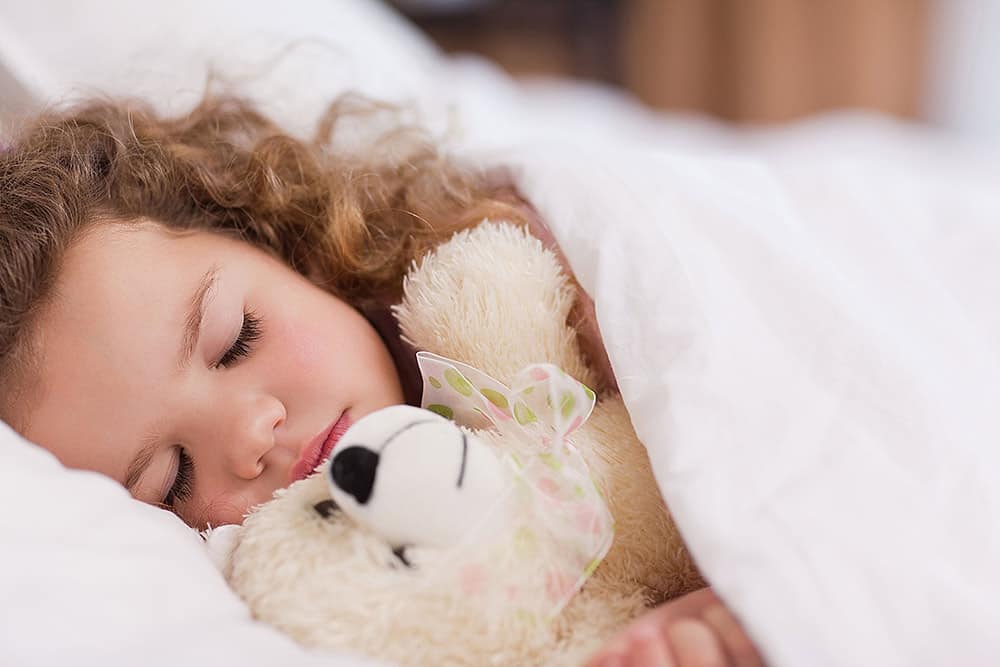
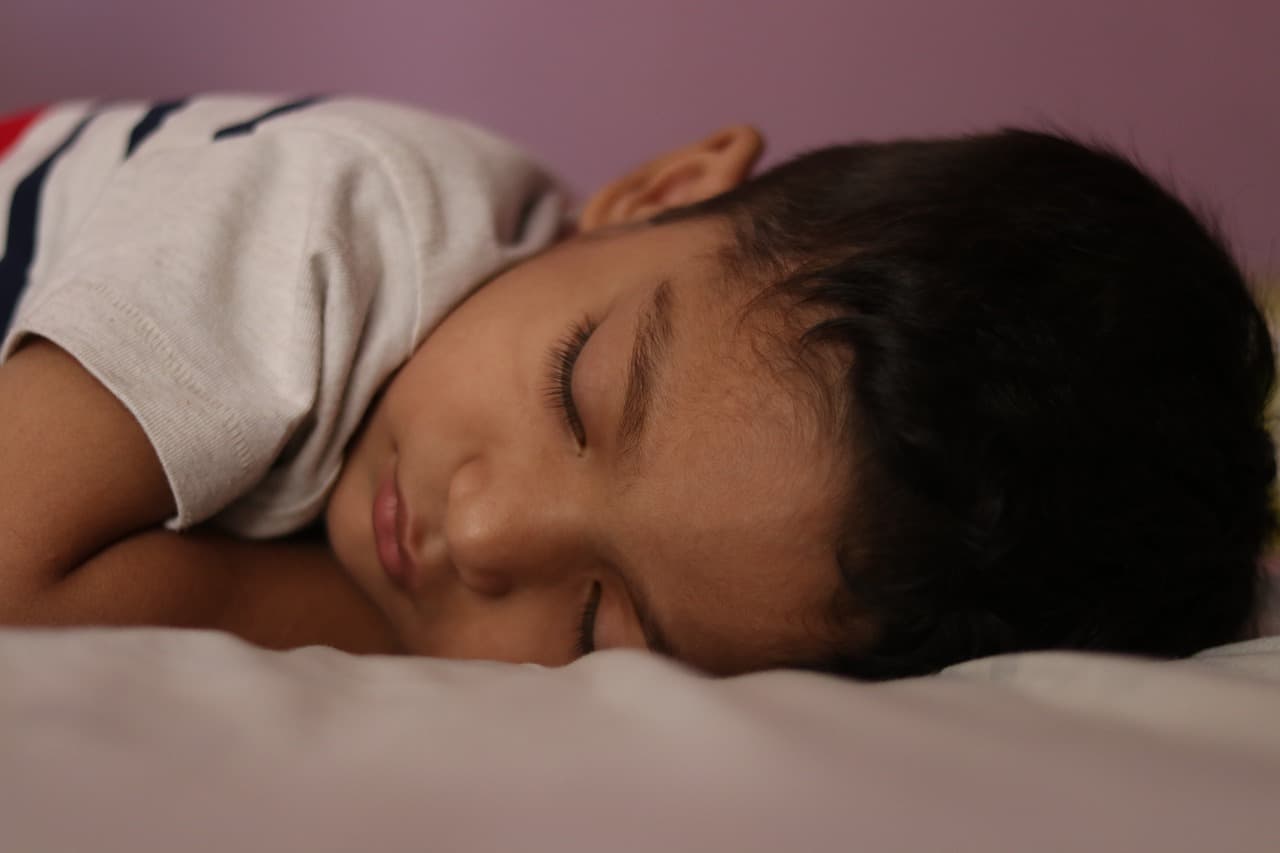

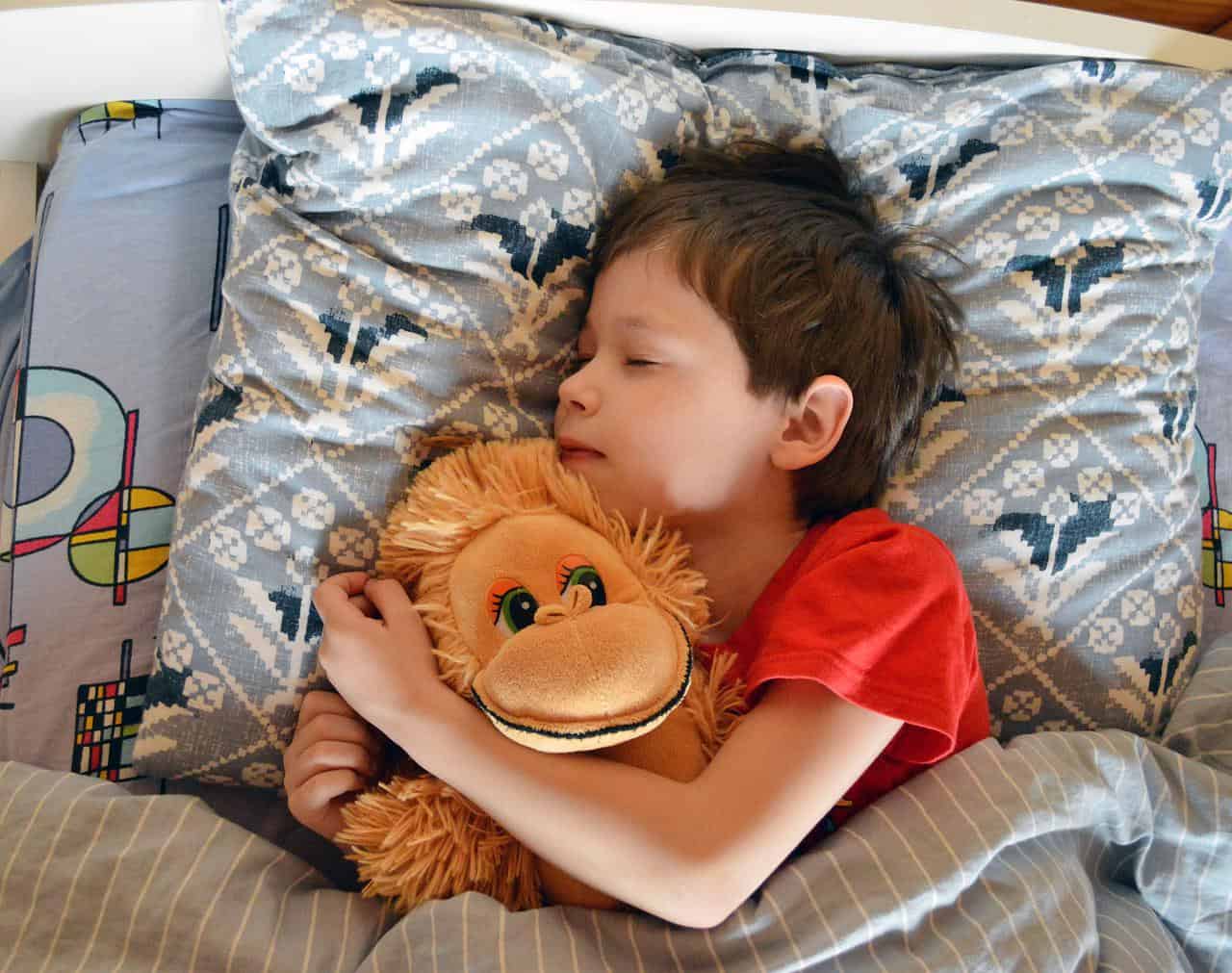


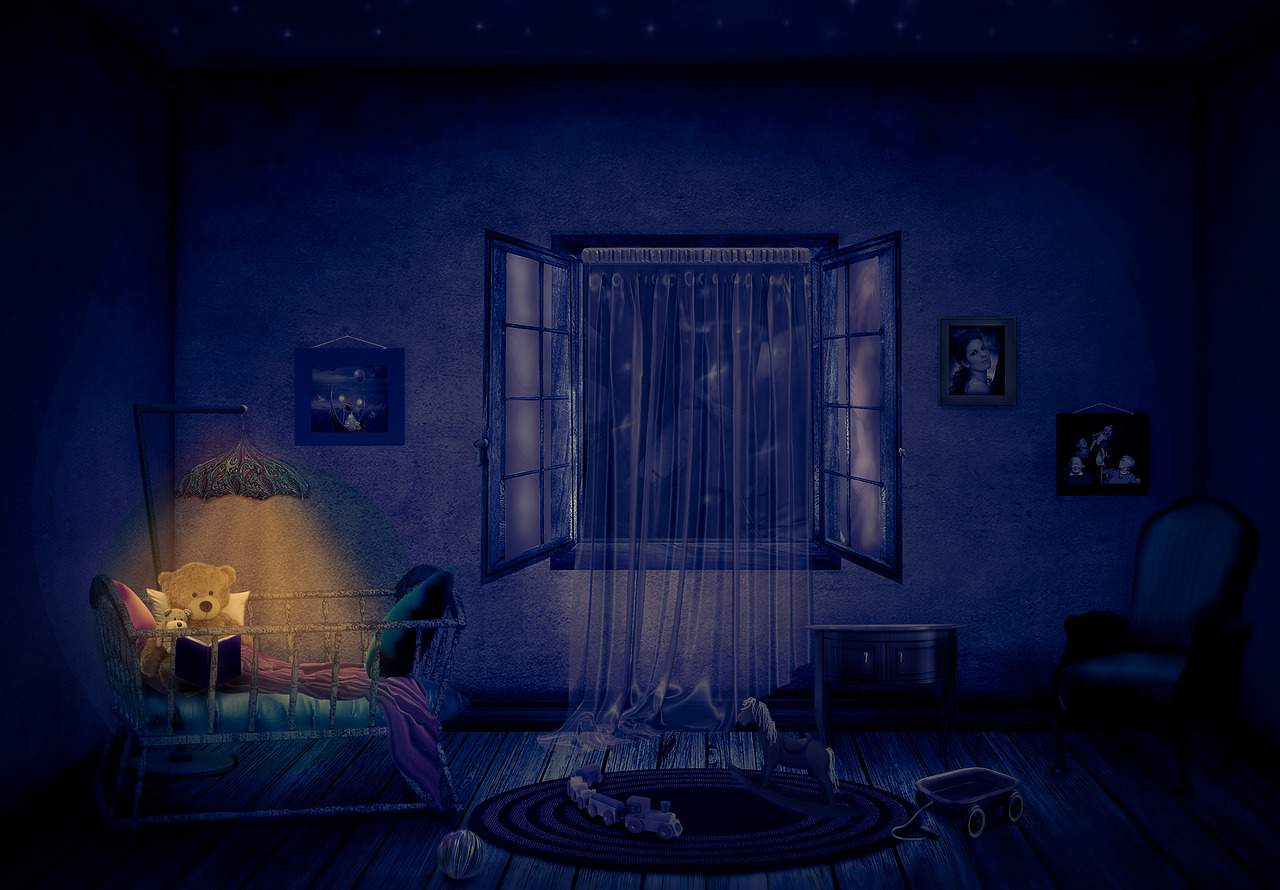





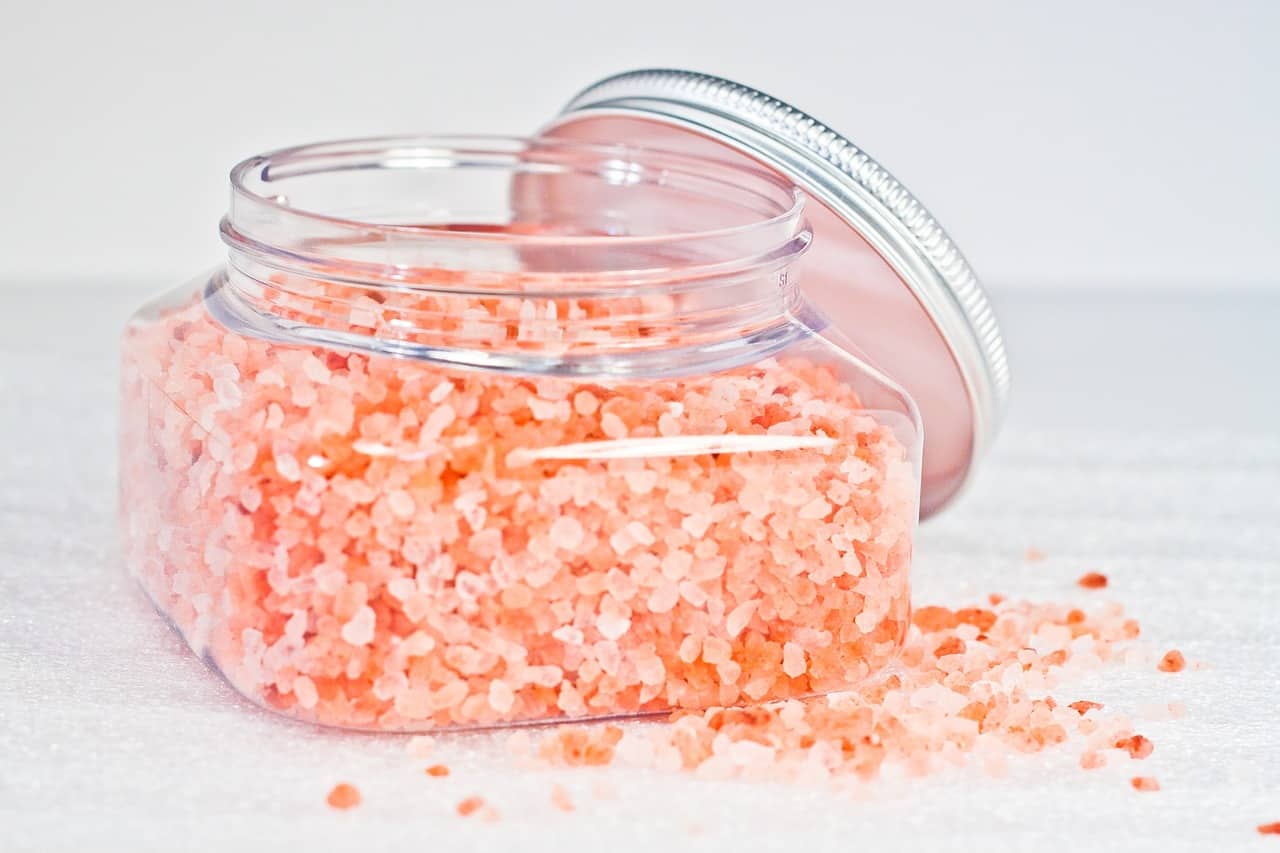
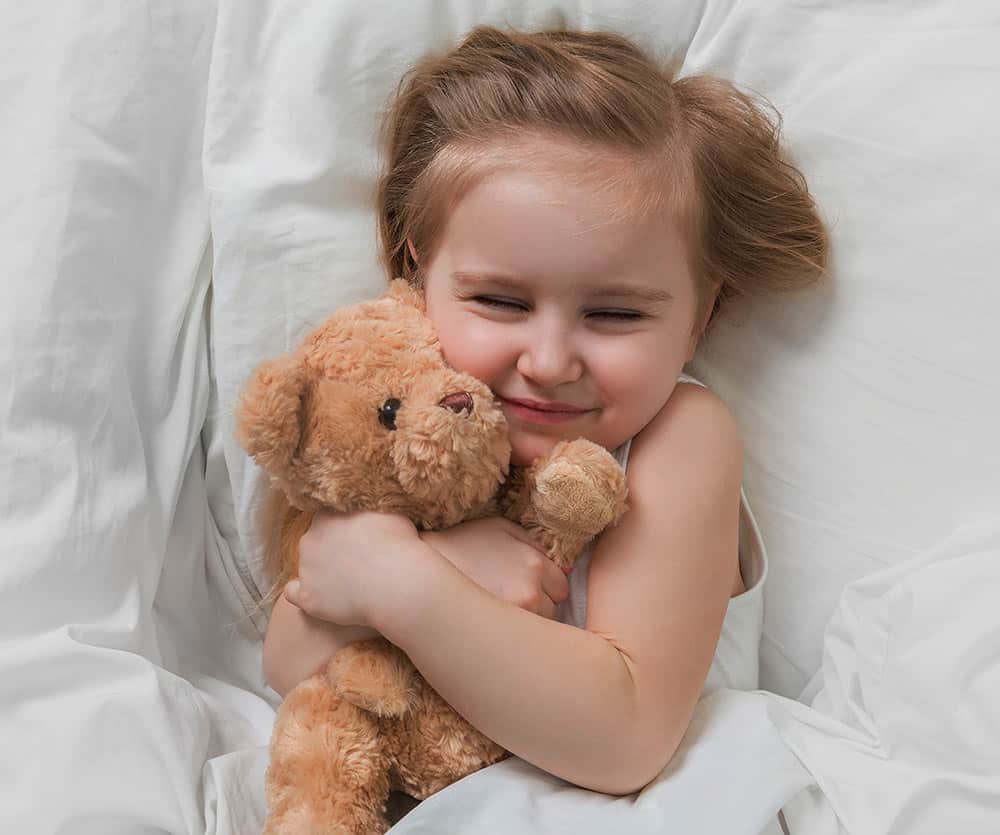


Wow I soooooooo can’t wait to try these remedies and will definitely report back on the progress. I have two children a girl of 8 and a boy of nearly 4. They both struggle immensely with sleep deprivation and I’ve tried everything from essential oils to sleep aiding medicine for the older one, but nothing has helped this far. Thank you and will give feed back shortly
Thank you! Every child is so different so I do hope these ideas help! I had one son and now a grandson who has difficulty sleeping and I use (used) a combination of all of these ideas–and they helped–especially the yoga. And yes, please let me know, Sleep is so important!
My goodness gracious!! I’m ready for bed after reading this, Sharlene 🙂 The amount of knowledge I learn from reading your blog posts is unbelievable. You truly are such a gifted woman with a plethora of knowledge. I will admit that our nightly routine isn’t the best around here. My husband works horrible hours that are inconsistent which makes keeping our nightly routine a little harder. It really is no excuse though. I need to do a better job of shutting off the tv and cell phone use way before we go to bed. You’ve motivated me to want to do better! Thank you.
Tiffany–YOU are an inspiration to me! Bedtime is not a slam-dunk–and every family is different with a unique set of challenges to get everyone into a routine. I think we all need to do better with shutting off electronic devices in the evening–but it can be overwhelming, I think we’re all doing the best we can! Thanks again for sharing!